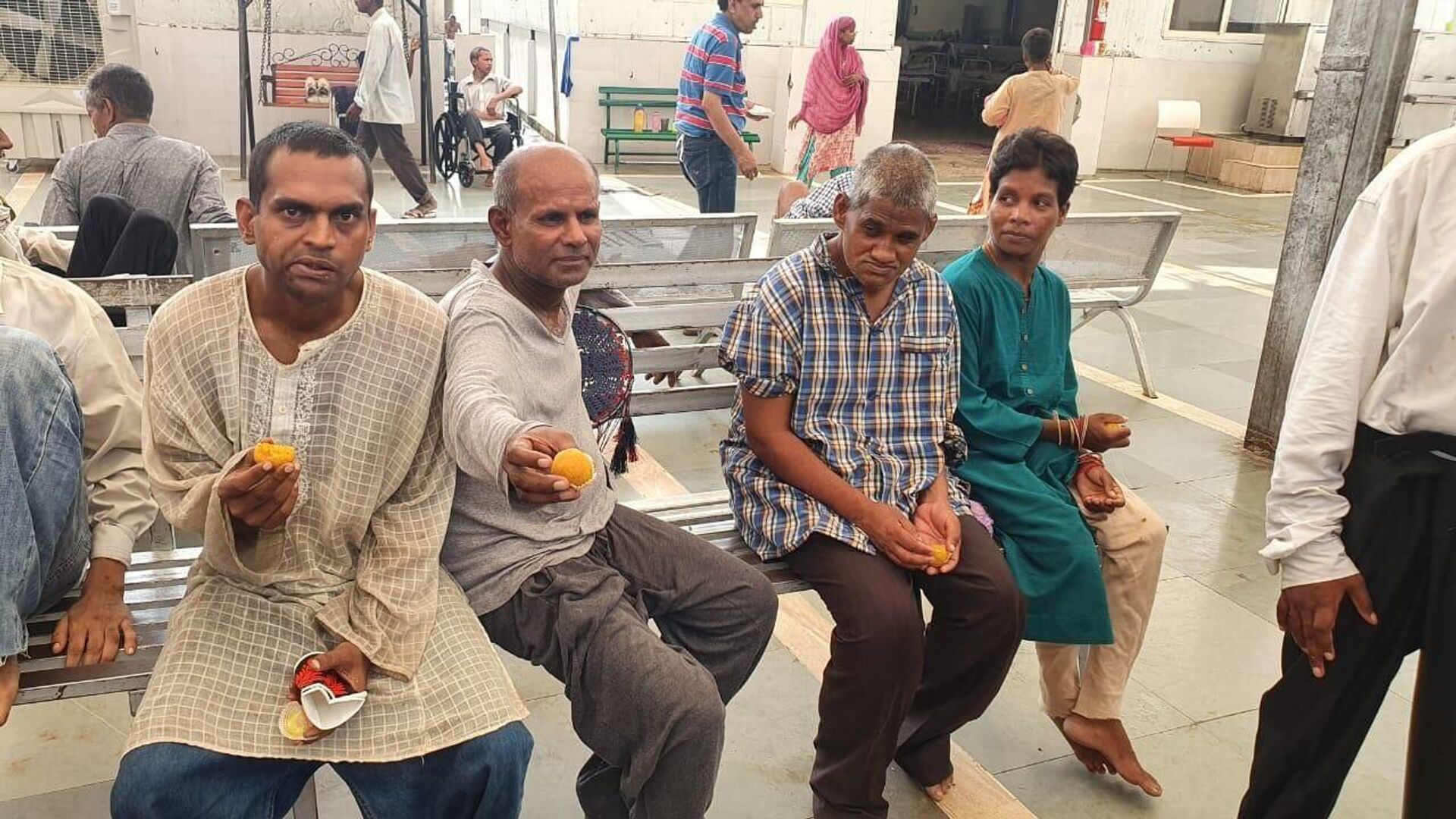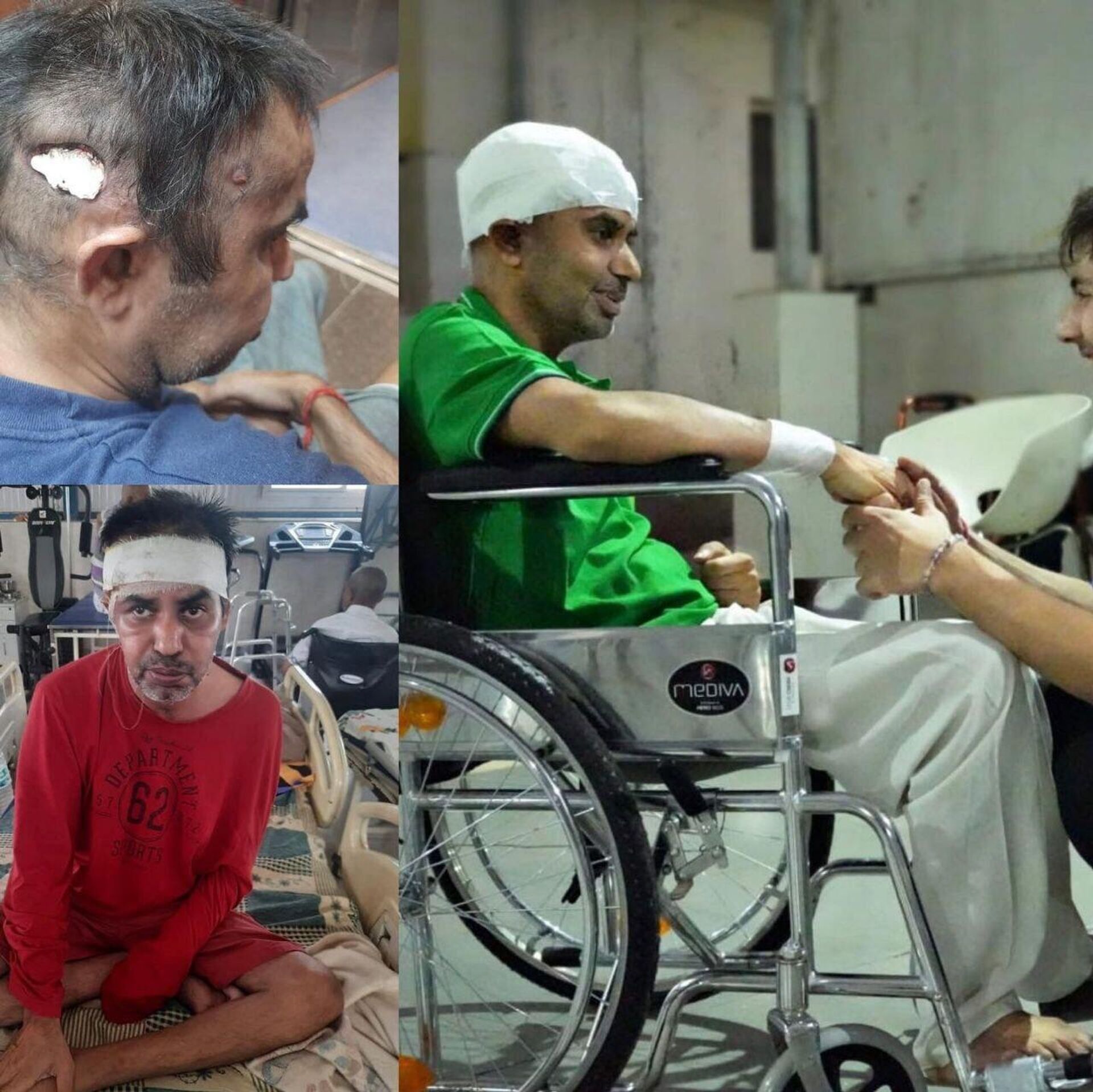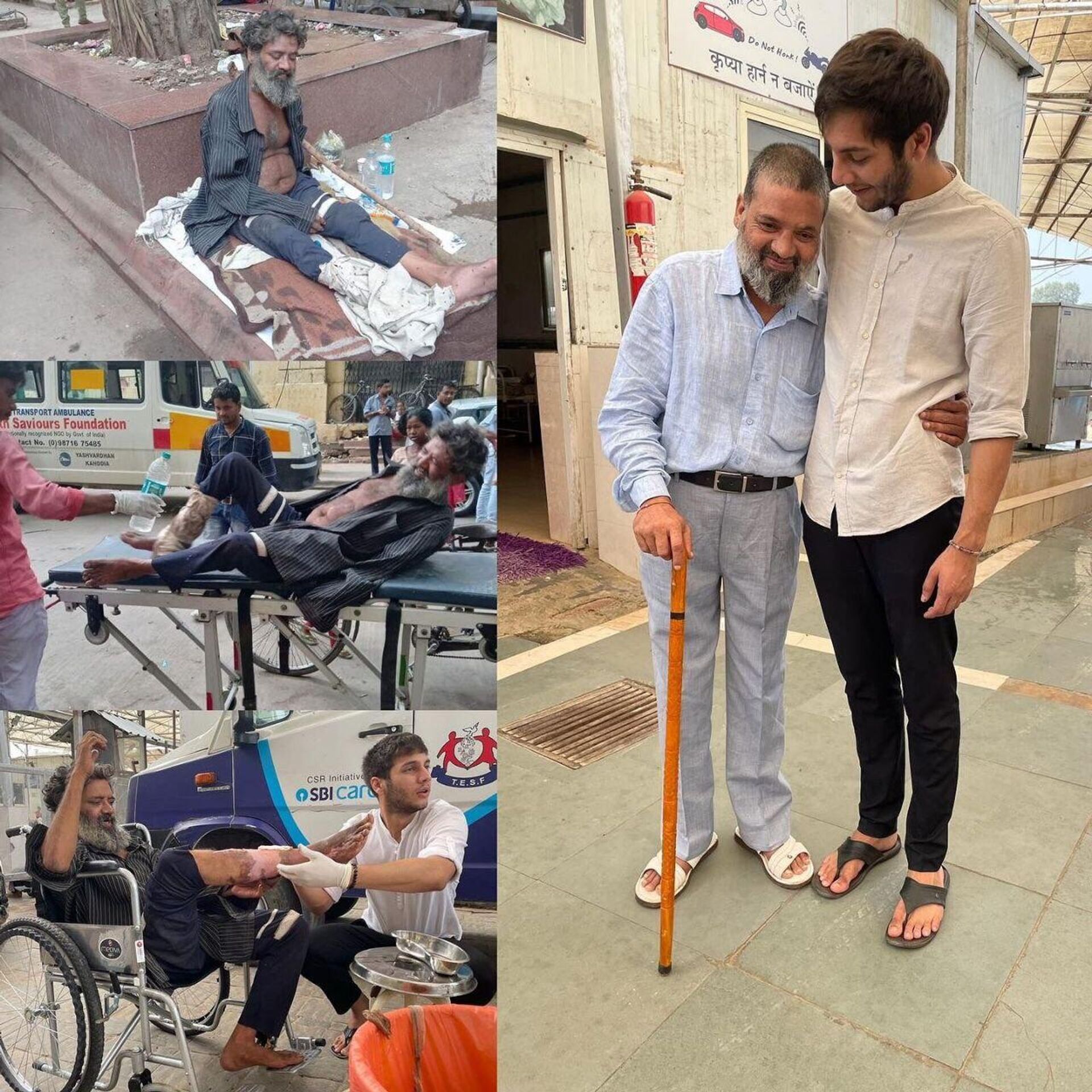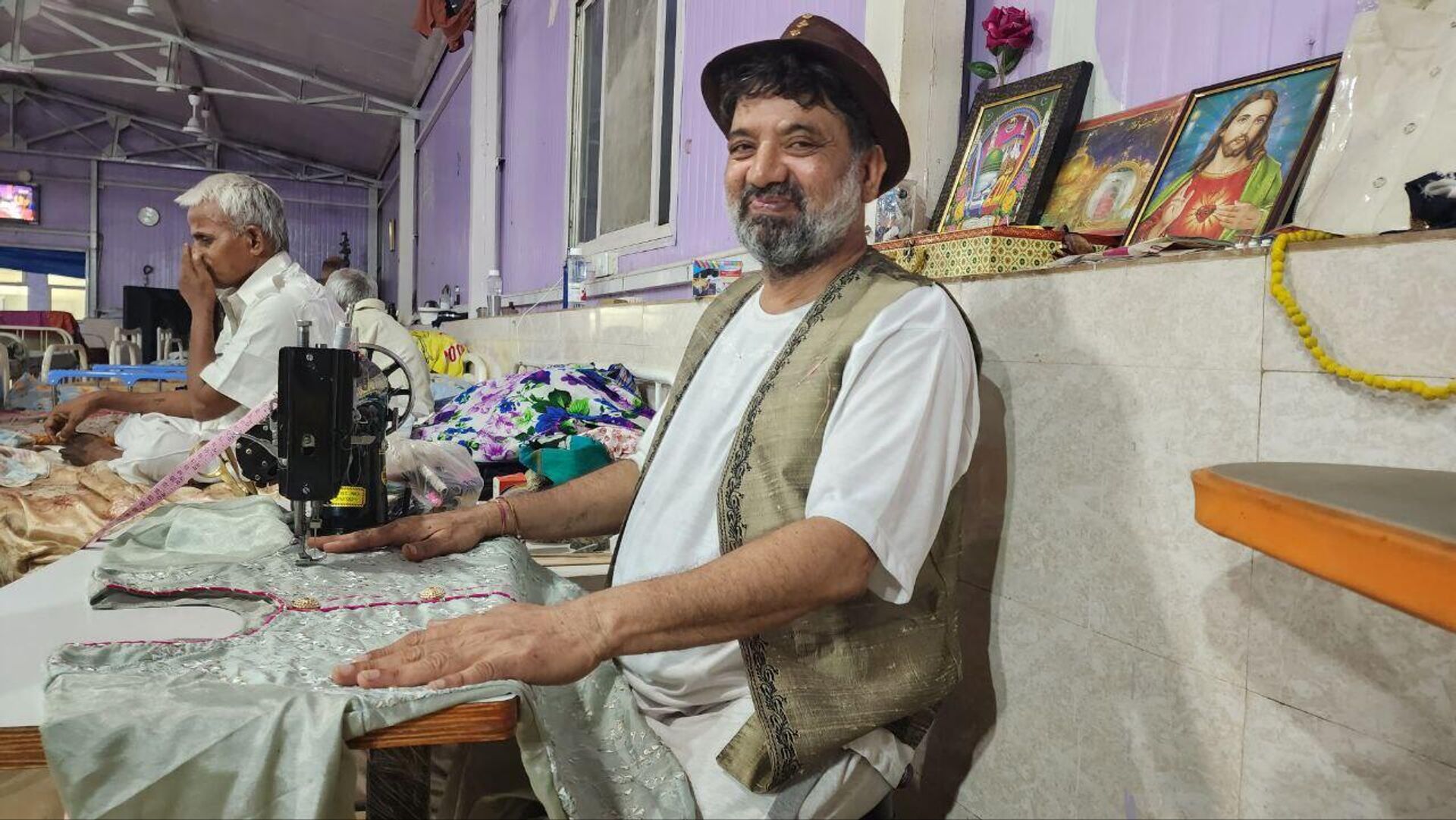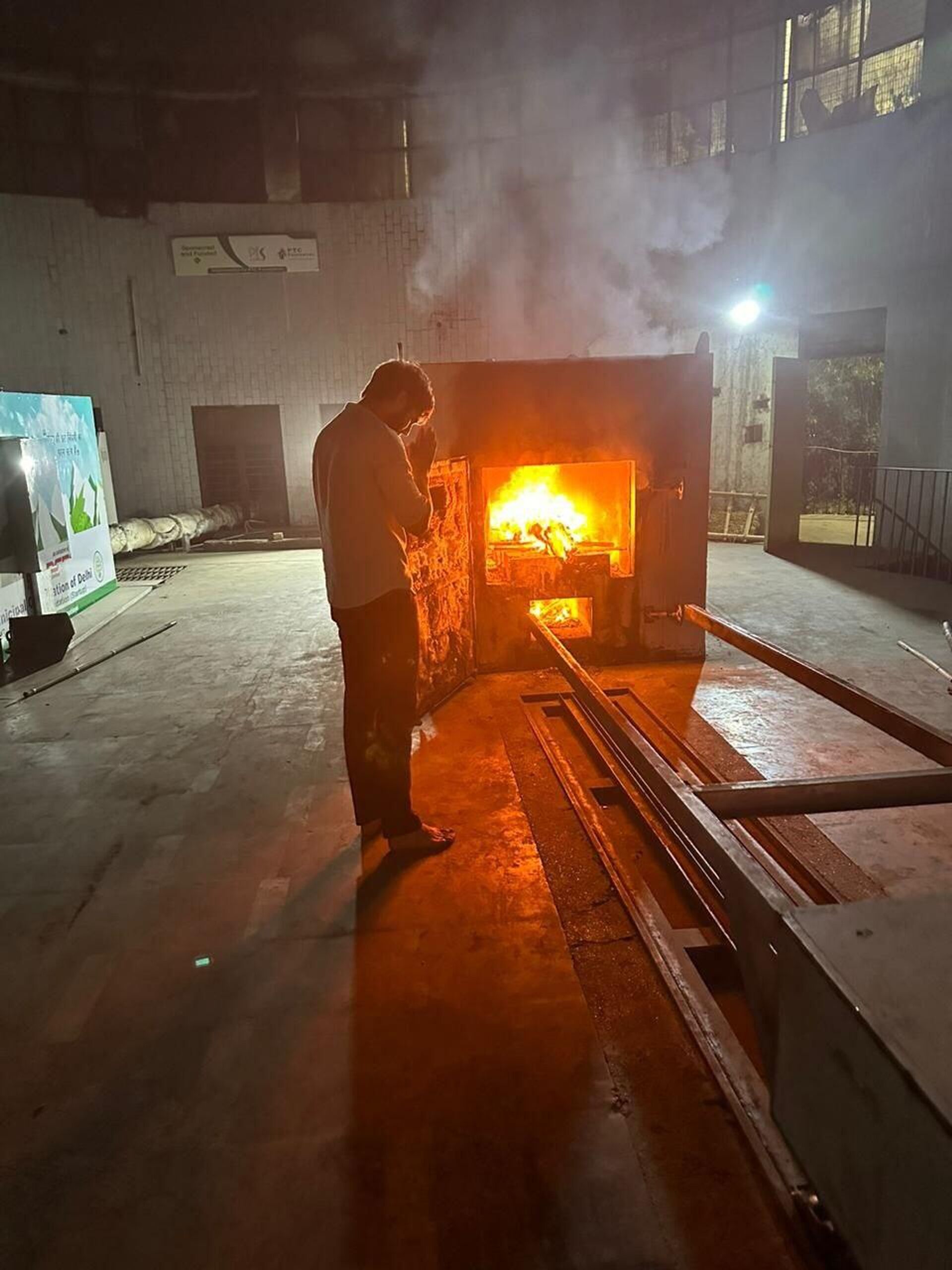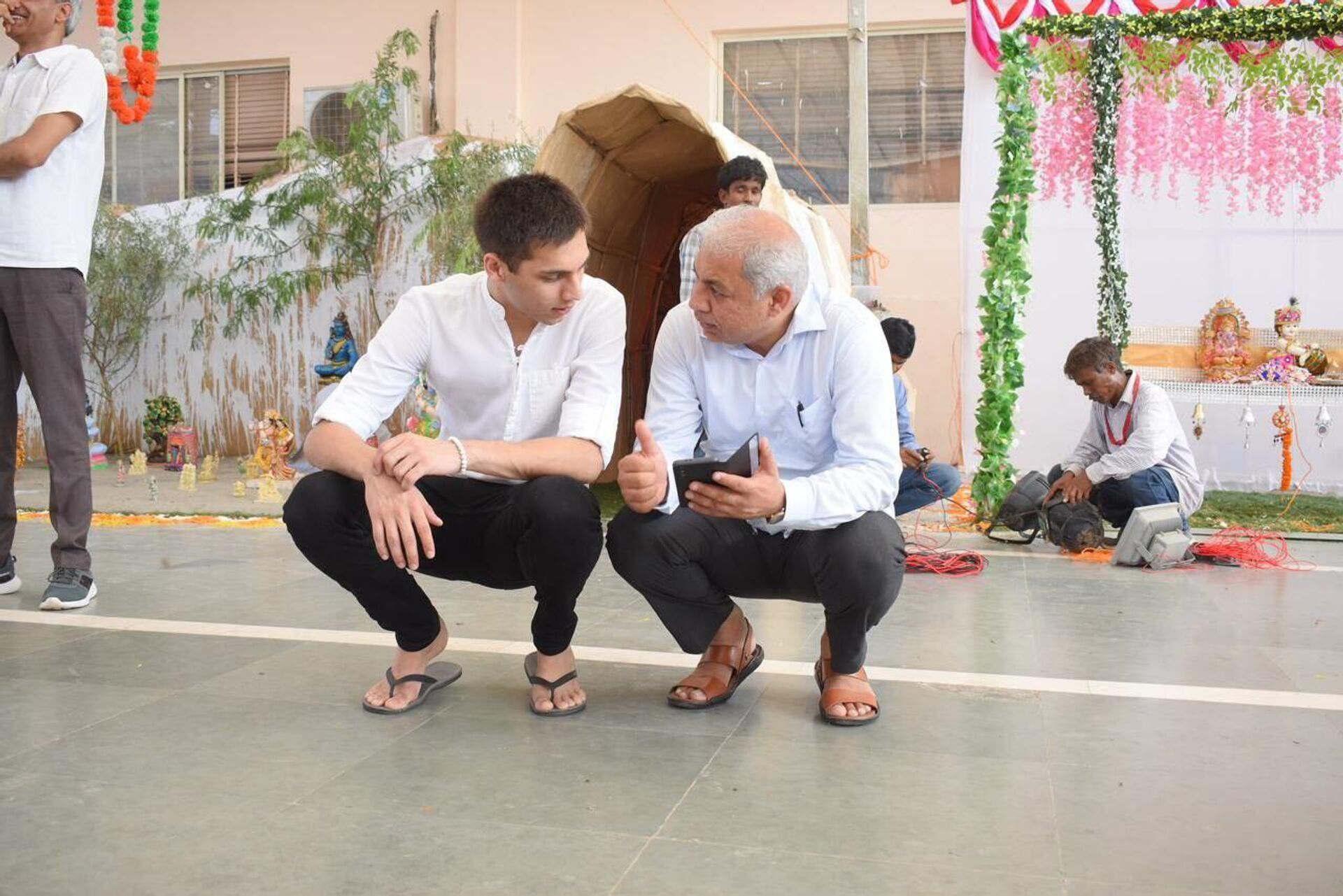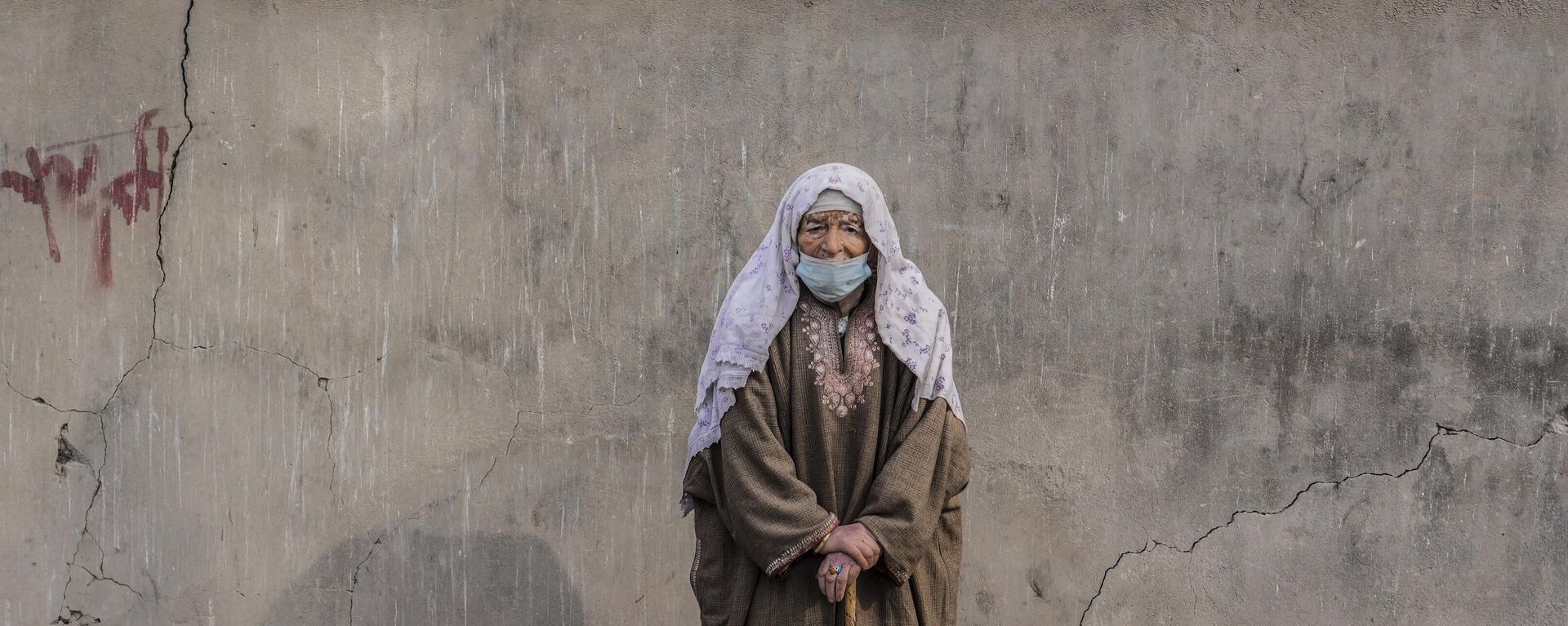https://sputniknews.in/20230702/abandoned--abused-elderly-find-solace-and-companionship-in-old-age-homes-2778229.html
Abandoned & Abused Elderly Find Solace and Companionship in Old-Age Homes
Abandoned & Abused Elderly Find Solace and Companionship in Old-Age Homes
Sputnik India
One in every six senior citizens faces abuse globally. The prevalence of elder abuse in India ranges between 9.6 to 61.7% across different states, despite several cases going unreported.
2023-07-02T12:42+0530
2023-07-02T12:42+0530
2023-07-02T12:42+0530
sputnik exclusives
india
domestic abuse
crime
hate crime
aging society
delhi
new delhi
health
health crisis
https://cdn1.img.sputniknews.in/img/07e7/07/01/2779055_0:0:1280:720_1920x0_80_0_0_21c2bb092a4dcc24f143820fcec04fc2.jpg
JC Verma, a 60-year-old chartered accountant from Delhi, was living a contented life working for a multinational corporation that paid him a handsome salary of INR 250,000 ($3,045) a month and a beautiful house in which to live. Then one day, which had started just like any other, Verma was sitting at his desk working when he suddenly fell to the ground and couldn’t move. On being taken to hospital, the doctor informed him that he had suffered a stroke and was permanently bedridden.After he lost his job and house, all his savings were spent on his treatment. Unfortunately, he was unable to recover in full and the doctors told his family they would have to become his full-time caregivers.Then the real tragedy hit: Verma’s family abandoned him and left him at a retirement home so that they wouldn't be burdened with having to take care of him.After months of treatment and physiotherapy, Verma’s condition improved by 90 percent.The old-age refuge, The Earth Saviours Foundation, has become his new home and the people helping him have become his family who helped him to get better during the worst phase of his life.“My family come to see me sometimes, but I don’t want to return home. This is my only home and, as I get better now, I want to help other people here,” Verma said.And he has learnt an important life lesson since coming to the old-age home. “When I was doing well in life, I never thought of helping others by doing social service," he said. "It’s only when you become a person in need that you realise how important it is. In a crisis, you discover who your real family is.”Verma is not the only one to have experienced elderly abuse and to have been abandoned by his family.Left to Fend for Himself on the StreetMohammad Zubair Khan, a 72-year-old tailor who was abandoned by his family, was rescued from the streets of Delhi a few months ago.He was found in critical condition with maggots eating his right leg, wearing torn dirty clothes, and his hair full of knots. He was also mentally unstable.“My entire leg was swollen because of the maggot infection and in some places bones had started to show. When I was brought to the old-age home, the maggots were removed and doctors advised me that my leg would have to be amputated,” Khan added.However, with proper care and medication, Khan recovered and his leg was spared amputation.He now cuts quite a dash as he walks down the road, wearing shoes, hat at a rakish angle and brandishing a polished walking stick.He was given a sewing machine which he uses to recycles clothes which have been donated to the old-age home for the residents and to makes mobile covers to give to guests who visit the centre.“I found peace in here and I want to be here for those who have lost their own family. This life has given me another chance to live by doing something good for others,” Khan said.Making The Decision To Come To The Old-Age HomeAlthough stories are rife about senior citizens who have been physically and mentally abused and abandoned, and are forced to recover in an old-age home, there are examples of elderly people who come to the centre at their own volition - such as 75-year-old Karuna Mehra from Delhi who entered the refuge with her disabled grandson.“I injured my leg in an accident and could no longer walk," she says. "I had to use a wheelchair. However, after physiotherapy and treatment, I can walk a little bit with the help of a zimmer frame. My grandson is disabled as he is suffering from an incurable disease. We spent millions of rupees on his treatment but nothing helped," she added.She said that she couldn’t have found a better home than The Earth Saviours Foundation which provides its refugees with a roof over their head, clothes to wear and food at regular meal times. Even small needs and amenities are provided by the volunteers.Mehra's family comes to see her every month and stays connected with her each day with the help of video calls.However, she was saddened by those around he who had been abandoned. “There are some elderly people who had so much property and were so rich. But their children transferred ownership of the properties to their own names and abandoned them. They keep crying on their bed, and feel depressed. And when they die, their children don’t come to perform the cremation ceremony,” Mehra said.She added that those children, who do this to their parents, should know that every action - every bad karma - has its consequences; "as ye sow, so shall ye reap".“I urge them that if they have money, keep a servant or a care giver for their ageing relations. And if you don’t have money, and you can’t be available to take care of your old parents, then it is better to bring them to the old-age home and stay connected on video calls or come to meet them whenever you get time,” Mehra said.Person Behind The Earth Saviour FoundationThe seeds of The Earth Saviour Foundation were sown by late businessman-turned-philanthropist, environmentalist and social worker Ravi Kalra in 2008 after he witnessed a heart-wrenching incident.Jas said that his father always wanted to do social service and help the abused, tortured and abandoned elders. And after several failed attempts, he managed to open a small shelter in Delhi’s Vasant Kunj area.“I remember he rented a small space and made small huts by himself. At night, he used to go out on the streets and find abandoned, orphaned, handicapped or mentally unstable people sleeping rough. He used to bring them to the ashram (shelter) and save them,” Jas recalled.From 10 people to 50, then 200 and 600 people, he rescued many and gave them a home, food and cared for them at his shelter.The Earth Saviours Foundation has now expanded into two centres - one in Bandhwari village and the other in Mandawar village in Harayana state’s Gurugram city - which provide a home to more than 1,100 people.Karmic Sewa – Cremating Unclaimed BodiesAnd Ravi Kalra's philanthropy did not end there: he also started cremating corpses who had died alone with no one to give fire to their funeral pyre.“He used to feel bad considering the dead bodies of those who died in an accident and whose families were untraceable and he decided to give them a dignified send off. He used to perform the last rites with proper rituals and then take their ashes to Haridwar city to immerse them in the Holy River Ganga,” Jas recalled.His father cremated more than 12,000 dead bodies.Taking the Legacy ForwardWhen Jas Kalra came back to India at the age of 21 in 2021, after finishing his advanced psychology studies overseas, he felt a strong vocation to join his father in his mission. He has also cremated more than 3,000 bodies and taken them to Haridwar to immerse them in the River Ganga.The Plight of Abandoned Senior CitizensThe elderly population of India, which consists of people aged 60 and over, is expected to reach 194 million by 2031, a 41 percent increase from 138 million (67 million males, 71 million females) in 2021, according to the Elderly in India 2021 report, released by the National Statistical Office (NSO).Abuse is more prevalent in cities than in towns and villages.Jas had rescued abandoned old people from the streets who either beg to survive or become mentally ill and lie on the pavement. Some were beaten and asked to go away. Some were found in dingy places such as by railway tracks, dumps, near sewers or under flyovers where nobody disturbs them. They survive by eating food which has been discarded.“When these people are rescued by our team and brought to the centre by the police, or sent here by hospital or court order, their hands and legs have cuts and their heads are wounded. They usually have blood clots or even worms on their body,” Jas said.When the person gets better at the centre, they enlist the help of the police to try to reunite them with their family, but the elderly refuse to go back. They stay at the centre and lead a happy life independently and with dignity.In the past 15 years, the old-age centres have given a new lease of life to around 10,000 people.Why do children abuse their old parents?The abuse of senior citizens stems from disrespect, oppression, anger and frustration that leads to emotional or psychological abuse. It then goes on to physical abuse and abandonment.Jas feels that children misbehave and abuse their old parents because they think of them as a liability. Children don’t want their old parents to be dependent on them either financially or because they are suffering some sort of disability or incurable disease.“Initially, I thought that there is a lack of education. But later I realized that the family don’t instill proper values in their children. As a result, they start blaming their parents and take out their frustration and anger which arise from environment hazards that cause stress or financial and health problems. Often the weakest and most vulnerable people such as senior citizens and children face cruelty,” Jas said.“As humans, we have the potential to do good - but also have inherent cruelty from the start. Either we will do good or bad, only the situation decides,” he added.Cases Go UnreportedMany cases of elderly abuse go unreported to the police because victims are often reluctant to file a complaint or speak up against their own children.He added that it is important to report these crimes against humanity to the police and hold those responsible to account for doing such evil to their parents.Under Indian law, individuals who intentionally abuse their parents or senior citizens under their care and abandon them can face severe consequences such as six months in prison or a hefty fine of INR 10,000 ($120), or even both.Calling it one of the biggest evils of society, Jas said that it requires all stakeholders to understand the issue and work together to bring change in people's minds for a better society.“My personal urge to people is that if you see someone lying on the footpath, mentally ill or disabled, don’t leave them alone. Bring them to our centre and we will take care of them. If you are bringing your parents for their care, then please make time to visit them often and sit and listen to their stories,” Jas concluded.
https://sputniknews.in/20230615/eternal-caregivers-elderly-women-in-india-feel-invisible-because-of-social-conditioning-2489570.html
india
delhi
new delhi
Sputnik India
feedback.hindi@sputniknews.com
+74956456601
MIA „Rossiya Segodnya“
2023
Sangeeta Yadav
https://cdn1.img.sputniknews.in/img/07e6/0c/0f/110602_0:0:641:640_100x100_80_0_0_c298016a79eb02ef8caa9d1f688c12a5.jpg
Sangeeta Yadav
https://cdn1.img.sputniknews.in/img/07e6/0c/0f/110602_0:0:641:640_100x100_80_0_0_c298016a79eb02ef8caa9d1f688c12a5.jpg
News
en_IN
Sputnik India
feedback.hindi@sputniknews.com
+74956456601
MIA „Rossiya Segodnya“
Sputnik India
feedback.hindi@sputniknews.com
+74956456601
MIA „Rossiya Segodnya“
Sangeeta Yadav
https://cdn1.img.sputniknews.in/img/07e6/0c/0f/110602_0:0:641:640_100x100_80_0_0_c298016a79eb02ef8caa9d1f688c12a5.jpg
plight if senior citizens in india, senior citizen abuse, senior citizens in oldage home, india's population of senior citizen, permanently bedridden, family abandoned their old parents, oldage home, the earth saviours foundation, abandoned by family, elderly abuse, rescued from the streets in delhi, abandoned & tortured elderly, solace in old age home, plight of abandoned senior citizens, funeral, cremating unclaimed body, mentally unstable, abandoned by his family, physically and mentally abused and abandoned, forced to rehabilitate in an oldage home, handicapped, suffering from an incurable disease, bad karma, indian law for senior citizen's protection, jas kalra, ravi kalra, holy river ganga, vasant kunj , shelter care, ashram, immersing the ashes, abuse of senior citizens, police case against such crimes
plight if senior citizens in india, senior citizen abuse, senior citizens in oldage home, india's population of senior citizen, permanently bedridden, family abandoned their old parents, oldage home, the earth saviours foundation, abandoned by family, elderly abuse, rescued from the streets in delhi, abandoned & tortured elderly, solace in old age home, plight of abandoned senior citizens, funeral, cremating unclaimed body, mentally unstable, abandoned by his family, physically and mentally abused and abandoned, forced to rehabilitate in an oldage home, handicapped, suffering from an incurable disease, bad karma, indian law for senior citizen's protection, jas kalra, ravi kalra, holy river ganga, vasant kunj , shelter care, ashram, immersing the ashes, abuse of senior citizens, police case against such crimes
JC Verma, a 60-year-old chartered accountant from Delhi, was living a contented life working for a multinational corporation that paid him a handsome salary of INR 250,000 ($3,045) a month and a beautiful house in which to live.
Then one day, which had started just like any other, Verma was sitting at his desk working when he suddenly fell to the ground and couldn’t move. On being taken to hospital, the doctor informed him that he had suffered a stroke and was permanently bedridden.
After he lost his job and house, all his savings were spent on his treatment. Unfortunately, he was unable to recover in full and the doctors told his family they would have to become his full-time caregivers.
Then the real tragedy hit: Verma’s family abandoned him and left him at a retirement home so that they wouldn't be burdened with having to take care of him.
“My wife and children left me and said that 'you are of no use to us, and we can’t do anything about your condition'. I became a liability to my family,” Verma told Sputnik.
After months of treatment and physiotherapy, Verma’s condition improved by 90 percent.
The old-age refuge, The Earth Saviours Foundation, has become his new home and the people helping him have become his family who helped him to get better during the worst phase of his life.
“My family come to see me sometimes, but I don’t want to return home. This is my only home and, as I get better now, I want to help other people here,” Verma said.
And he has learnt an important life lesson since coming to the old-age home. “When I was doing well in life, I never thought of helping others by doing social service," he said. "It’s only when you become a person in need that you realise how important it is. In a crisis, you discover who your real family is.”
Left to Fend for Himself on the Street
Mohammad Zubair Khan, a 72-year-old tailor who was abandoned by his family, was rescued from the streets of Delhi a few months ago.
He was found in critical condition with maggots eating his right leg, wearing torn dirty clothes, and his hair full of knots. He was also mentally unstable.
“My situation was such that I had lost everyone in my life. I was addicted to alcohol and my entire family abandoned me. I had nowhere to go. I was living on the pavements, begging for food and lying in some corner in an inebriated state,” Khan told Sputnik.
“My entire leg was swollen because of the maggot infection and in some places bones had started to show. When I was brought to the old-age home, the maggots were removed and doctors advised me that my leg would have to be amputated,” Khan added.
However, with proper care and medication, Khan recovered and his leg was spared amputation.
He now cuts quite a dash as he walks down the road, wearing shoes, hat at a rakish angle and brandishing a polished walking stick.
He was given a sewing machine which he uses to recycles clothes which have been donated to the old-age home for the residents and to makes mobile covers to give to guests who visit the centre.
“I found peace in here and I want to be here for those who have lost their own family. This life has given me another chance to live by doing something good for others,” Khan said.
Making The Decision To Come To The Old-Age Home
Although stories are rife about senior citizens who have been physically and mentally abused and abandoned, and are forced to recover in an old-age home, there are examples of elderly people who come to the centre at their own volition - such as 75-year-old Karuna Mehra from Delhi who entered the refuge with her disabled grandson.
“I injured my leg in an accident and could no longer walk," she says. "I had to use a wheelchair. However, after physiotherapy and treatment, I can walk a little bit with the help of a zimmer frame. My grandson is disabled as he is suffering from an incurable disease. We spent millions of rupees on his treatment but nothing helped," she added.
"I have come here on my own wishes. None of my children abandoned me. They took care of me a lot but the care I am getting at the old-age home was not possible in my own home,” Mehra told Sputnik.
She said that she couldn’t have found a better home than The Earth Saviours Foundation which provides its refugees with a roof over their head, clothes to wear and food at regular meal times. Even small needs and amenities are provided by the volunteers.
Mehra's family comes to see her every month and stays connected with her each day with the help of video calls.
However, she was saddened by those around he who had been abandoned. “There are some elderly people who had so much property and were so rich. But their children transferred ownership of the properties to their own names and abandoned them. They keep crying on their bed, and feel depressed. And when they die, their children don’t come to perform the cremation ceremony,” Mehra said.
She added that those children, who do this to their parents, should know that every action - every bad karma - has its consequences; "as ye sow, so shall ye reap".
“I urge them that if they have money, keep a servant or a care giver for their ageing relations. And if you don’t have money, and you can’t be available to take care of your old parents, then it is better to bring them to the old-age home and stay connected on video calls or come to meet them whenever you get time,” Mehra said.
Person Behind The Earth Saviour Foundation
The seeds of The Earth Saviour Foundation were sown by late businessman-turned-philanthropist, environmentalist and social worker Ravi Kalra in 2008 after he witnessed a heart-wrenching incident.
“One day, when he was going to his office, he saw a small girl and a dog sitting near the rubbish bin eating trash. This broke his heart and he realised that his life had no meaning if he didn't do anything for those who are in dire need of help to tackle their situation. That day, he vowed to dedicate his life to serving those struggling to survive,” Jas Kalra, son of Ravi, told Sputnik.
Jas said that his father always wanted to do social service and help the abused, tortured and abandoned elders. And after several failed attempts, he managed to open a small shelter in Delhi’s Vasant Kunj area.
“I remember he rented a small space and made small huts by himself. At night, he used to go out on the streets and find abandoned, orphaned, handicapped or mentally unstable people sleeping rough. He used to bring them to the ashram (shelter) and save them,” Jas recalled.
From 10 people to 50, then 200 and 600 people, he rescued many and gave them a home, food and cared for them at his shelter.
The Earth Saviours Foundation has now expanded into two centres - one in Bandhwari village and the other in Mandawar village in Harayana state’s Gurugram city - which provide a home to more than 1,100 people.
Karmic Sewa – Cremating Unclaimed Bodies
And Ravi Kalra's philanthropy did not end there: he also started cremating corpses who had died alone with no one to give fire to their funeral pyre.
“He used to feel bad considering the dead bodies of those who died in an accident and whose families were untraceable and he decided to give them a dignified send off. He used to perform the last rites with proper rituals and then take their ashes to Haridwar city to immerse them in the Holy River Ganga,” Jas recalled.
His father cremated more than 12,000 dead bodies.
Taking the Legacy Forward
When Jas Kalra came back to India at the age of 21 in 2021, after finishing his advanced psychology studies overseas, he felt a strong vocation to join his father in his mission.
“My father was my guiding force and inspiration. When I joined this non-governmental organisation, I learnt a lot from him. But after three months he died of a heart attack [in December 2021, aged 51] and it all came onto my shoulders. He left 600 people’s care as an inheritance. I and my team have continued his dream to provide a home and care to those in need,” the 23-year-old philanthropist said.
He has also cremated more than 3,000 bodies and taken them to Haridwar to immerse them in the River Ganga.
The Plight of Abandoned Senior Citizens
The elderly population of India, which consists of people aged 60 and over, is expected to reach 194 million by 2031, a 41 percent increase from 138 million (67 million males, 71 million females) in 2021, according to the Elderly in India 2021 report, released by the National Statistical Office (NSO).
Abuse is more prevalent in cities than in towns and villages.
“Some people tie their parents up, beat them, keep them locked up and go on holiday. Some get them admitted to hospital and give the wrong contact details and then just disappear. Some leave them on busy streets or at railway station. Some put them on the train and say they will be back in five minutes but the train departs, and they never return,” Jas said.
Jas had rescued abandoned old people from the streets who either beg to survive or become mentally ill and lie on the pavement. Some were beaten and asked to go away. Some were found in dingy places such as by railway tracks, dumps, near sewers or under flyovers where nobody disturbs them. They survive by eating food which has been discarded.
“When these people are rescued by our team and brought to the centre by the police, or sent here by hospital or court order, their hands and legs have cuts and their heads are wounded. They usually have blood clots or even worms on their body,” Jas said.
“Some people come to our centre with their old parents and ask us to admit them giving excuses such as 'we don’t have a maid to take care of them', or 'we don’t have money for their medicine'. Some people come in big cars early in the morning, tie their old parents to our gate and run away,” he added.
When the person gets better at the centre, they enlist the help of the police to try to reunite them with their family, but the elderly refuse to go back. They stay at the centre and lead a happy life independently and with dignity.
In the past 15 years, the old-age centres have given a new lease of life to around 10,000 people.
Why do children abuse their old parents?
The abuse of senior citizens stems from disrespect, oppression, anger and frustration that leads to emotional or psychological abuse. It then goes on to physical abuse and abandonment.
Jas feels that children misbehave and abuse their old parents because they think of them as a liability. Children don’t want their old parents to be dependent on them either financially or because they are suffering some sort of disability or incurable disease.
“Initially, I thought that there is a lack of education. But later I realized that the family don’t instill proper values in their children. As a result, they start blaming their parents and take out their frustration and anger which arise from environment hazards that cause stress or financial and health problems. Often the weakest and most vulnerable people such as senior citizens and children face cruelty,” Jas said.
“As humans, we have the potential to do good - but also have inherent cruelty from the start. Either we will do good or bad, only the situation decides,” he added.
Many cases of elderly abuse go unreported to the police because victims are often reluctant to file a complaint or speak up against their own children.
“When we ask rescued elders whether they want to file a police case against their children for abuse and abandonment, they refuse and say that no matter what their child has done, they should not get into danger, or they should not get insulted in society. They refuse to share their name,” Jas said.
He added that it is important to report these crimes against humanity to the police and hold those responsible to account for doing such evil to their parents.
Under Indian law, individuals who intentionally abuse their parents or senior citizens under their care and abandon them can face severe consequences such as six months in prison or a hefty fine of INR 10,000 ($120), or even both.
Calling it one of the biggest evils of society, Jas said that it requires all stakeholders to understand the issue and work together to bring change in people's minds for a better society.
“My personal urge to people is that if you see someone lying on the footpath, mentally ill or disabled, don’t leave them alone. Bring them to our centre and we will take care of them. If you are bringing your parents for their care, then please make time to visit them often and sit and listen to their stories,” Jas concluded.
